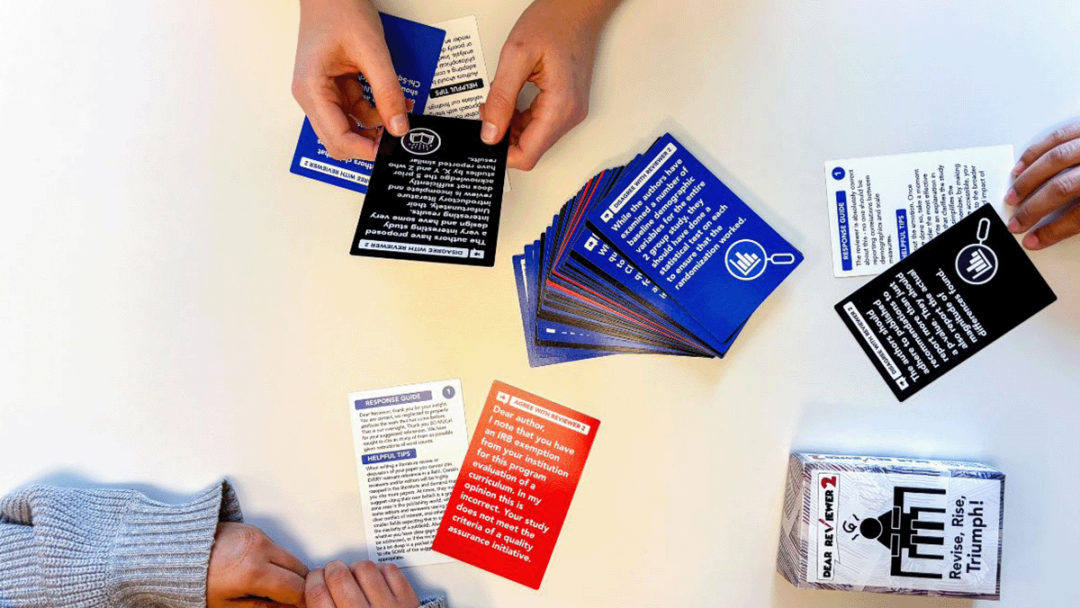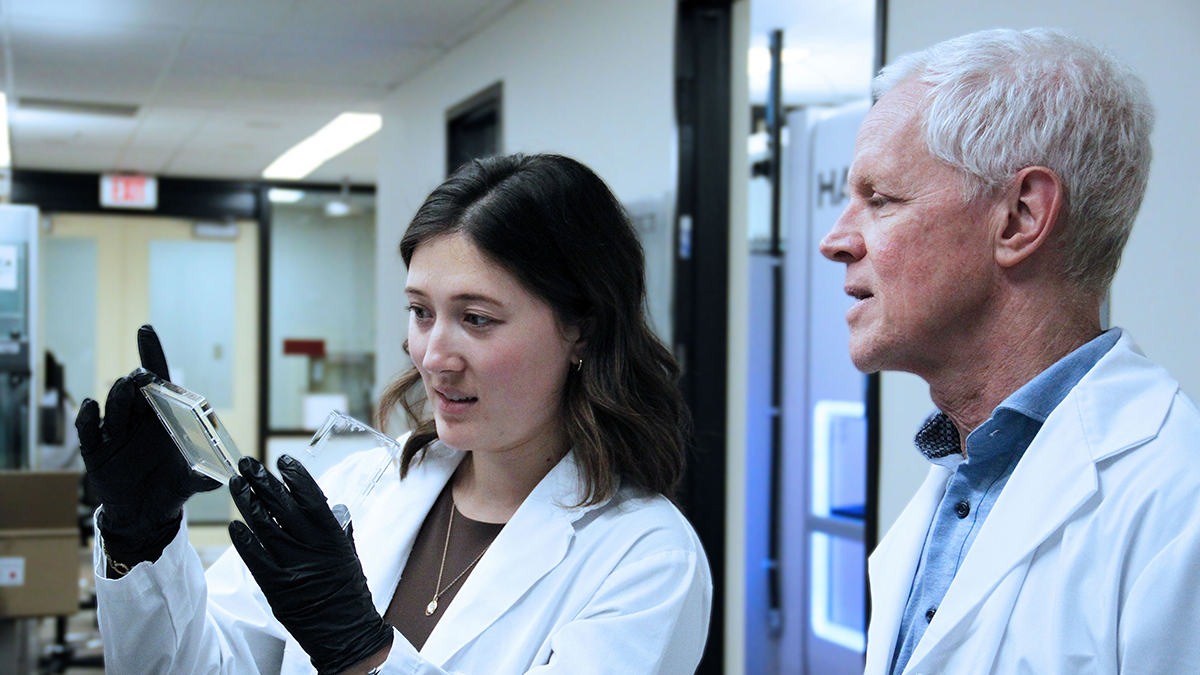‘Dear Reviewer 2’: The card game that prepares budding researchers for publication criticism

Rebecca Preyra knows all too well how overwhelming receiving feedback can be during the review process for study publication.
Faced with 16 pages of reviews, Preyra felt lost looking at the flooding of red that now covered her first-ever study. She felt unprepared for the level of feedback she received.
“I was shocked. No one told me I was going to receive my paper back riddled with a bunch of different baffling comments. You go back to the drawing board not quite knowing what to do next.”
The experience stuck with Preyra, who, after graduating from Western University with a degree in physiology and pharmacology, joined Teresa Chan’s lab and the McMaster Health Education Research, Innovation and Theory (MERIT) Centre as a summer student.
At the time, Chan, now the founding dean of the Toronto Metropolitan University School of Medicine, had an idea to help young researchers like Preyra better prepare for the realities of study review. Her idea was a card game, similar in scope to popular games like Apples to Apples or Cards Against Humanity.
“After the global success of our other serious games like GridlockED and TriagED, I thought it would be important to think about new areas where skills might be built up using game-based learning,” explained Chan. “As a researcher, reviewer, and editor myself, I know that peer review processes can be challenging for everyone.”
‘Revise, rise, triumph!’
Preyra was tapped by Chan to help develop this idea into a formal game. She started with interviews, speaking with clinician-scientists and researchers about their experiences with reviewer criticism and compiling their advice.
With this information in hand, Preyra and her colleagues got to work creating cards with prompts for the Dear Reviewer 2 game.
“The prompts are essentially comments that an individual known as ‘Reviewer 2’ would make to us on our paper submission. The point of the game is that everyone has a chance to respond to the comments and you gain points by having the best response, which is voted on by all players,” says Preyra, who is now a medical student at the University of Alberta.
The game can be played with two to eight players and includes three card difficulty levels. Each round, one player assumes the role of reviewer two and reads one of the prompts aloud.
One of the cards, for example, prompts players to disagree with the reviewer.
“Dear author, I have found that your citations are unimpressive. I am an expert in this area and suggest that you need to cite the following papers to ensure you have thoroughly paid allegiance to the work that has come before you,” the prompt reads.
The remaining players share how they would respond to the reviewer’s comment before collectively voting on the best response.
“It’s really fun and a low-stakes environment where you can learn how to respond to criticism,” Preyra says. “My hope is that it will help junior authors like me who are going through the process of submitting their first papers.”
Each card also comes with advice on how to respond to the critique, and for the trickier scenarios, a QR code is featured that links to additional resources and reporting guidelines.
“This tongue-in-cheek game builds on the lived experience of new and seasoned researchers. While there are lots of laughs, it’s also a reminder of how hard research can be and how hard we can be on each other. Perhaps a reminder that we can all do better,” says Jonathan Sherbino, assistant dean of MERIT.
———————-
Dear Reviewer 2 is now available for purchase. All proceeds will go towards funding further research and innovation at McMaster University.
ResearchRelated News
News Listing

January 6, 2025

Department of Medicine ➚
Pain to progress: An impactful history of lupus research and care at McMaster
Collaborations & Partnerships, Education, Research
December 20, 2024

Brighter World ➚
McMaster research in 2024: From AI innovation to breakthroughs in health care
Research
December 17, 2024
